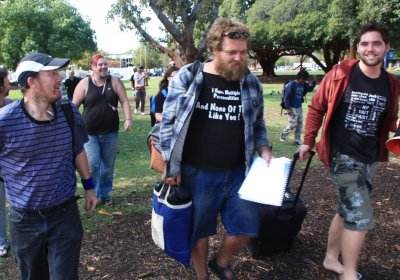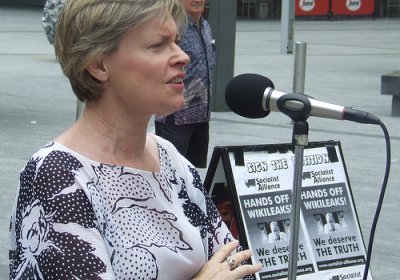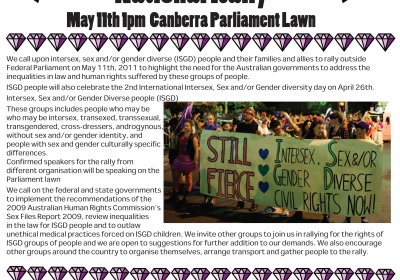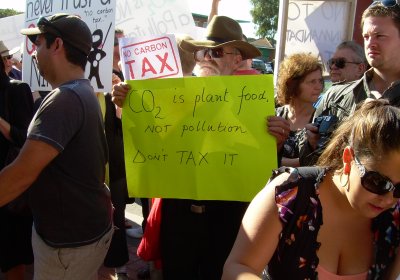877
The people of the Melbourne suburbs of Altona and Seaholme have begun a community revolt against train cuts to their area. The first public meeting on the issue attracted 250 people on March 3. A second meeting attracted 500 on March 29. The March 29 meeting set up the Altona Loop Action Group. The group held a protest outside the office of public transport minister Terry Mulder on April 12.
Twenty five people joined a demonstration organised by homeless people to protest plans by the Western Australian government to remove homeless people from the city during the Commonwealth Heads of Government Meeting (CHOGM) in October. on the street.” A parliamentary debate on April 7 revealed that homeless people would be directed away from CHOGM security areas in the city. Protesters were upset the government wanted to keep them out of sight during the CHOGM summit without doing anything to tackle homelessness.
- Previous page
- Page 2
- Next page









